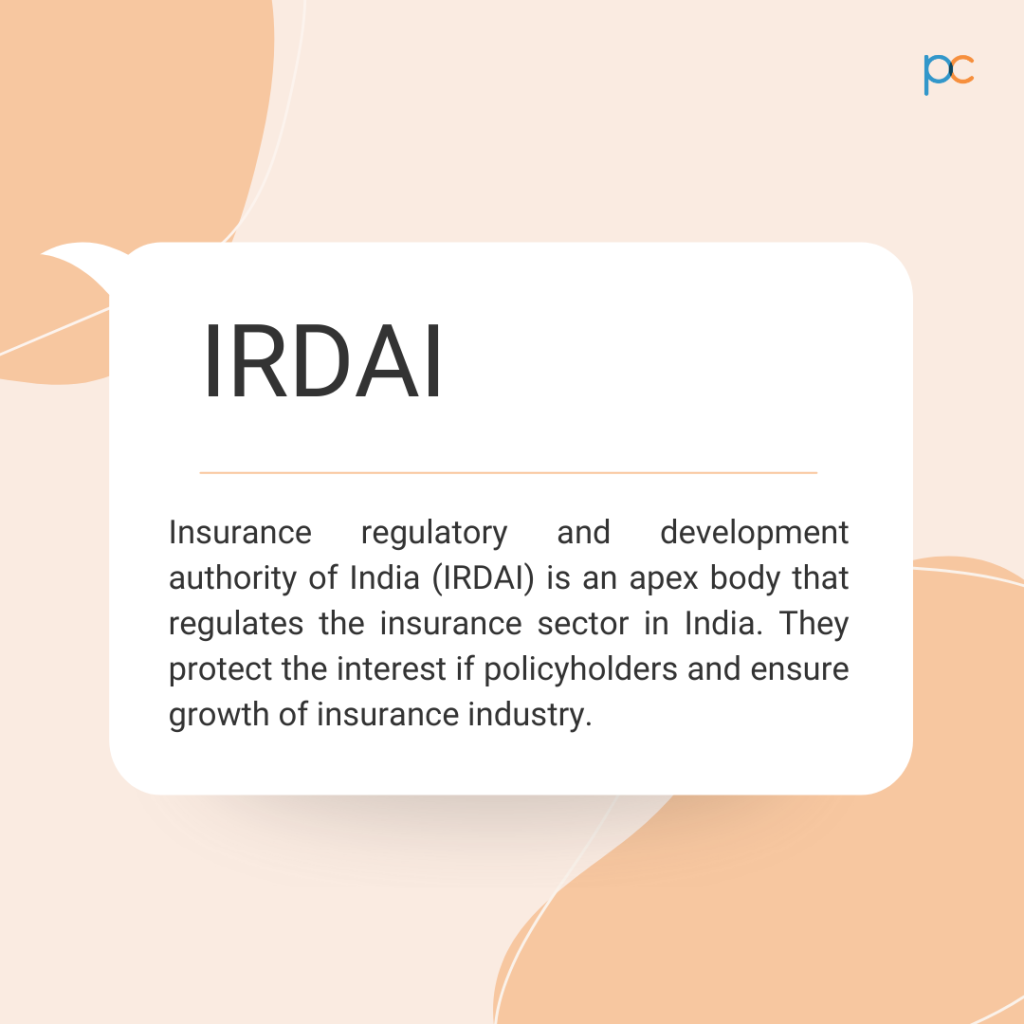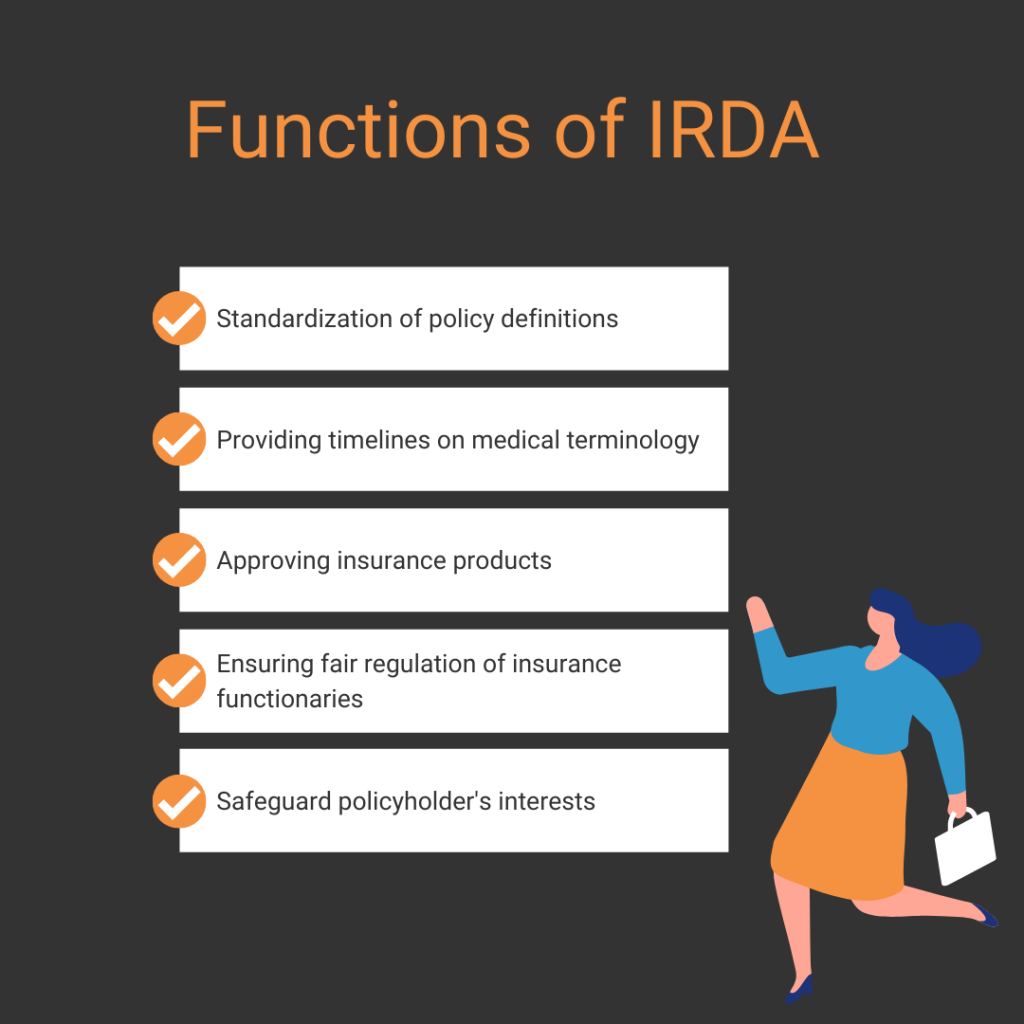
IRDAI, the Insurance Regulatory and Development Authority of India, regulates the insurance companies that function in the country. Whether you go for group health insurance or an individual one, IRDAI sets the guidelines associated with it. Read along to know the guidelines set by IRDAI for the employer or group health insurance plans in India.

Table of Contents
Before getting into the guidelines in detail, understand what a group healthcare plan is. A group health insurance plan is for the employees in an organization, offered by the employer of the company.
Startups, businesses, and companies all-over India can qualify for buying the policies for their employees. Informal groups can also purchase the policies where the group members can enjoy plan benefits. In an employer-employee group, the employer pays the premium for which the employee and their family members (subject to inclusion) can enjoy the medical expense coverage under the insured sum limit.
The policy The legal document issued to the policyholder that outlines the conditions and terms of the insurance; also called the ‘policy benefits are active till the last day of service. If the employee leaves the organization or group, the group policy gets cancelled. If they want, they can port it to an individual policy The legal document issued to the policyholder that outlines the conditions and terms of the insurance; also called the ‘policy under the IRDAI guideline and continue paying the premiums for enjoying the benefits.

Guideline on medical terminology – As there are multiple facets related to medical treatment, it is crucial for the insurance regulatory body to define certain terms for the benefit of the insurer. With the specified guidelines and standard definitions, it gets easier to understand the coverage and non-coverage aspects.
Every insurance provider has to adhere to the IRDAI standard definitions and terminology related to all products filed under Health Insurance Business. Thus, group health insurances also have to operate as per the defined terminology norms and regulations.
The IRDAI guideline on standardization of health insurance has several definitions and norms mentioned. The above-discussed terms are from the IRDAI guideline and are frequently required by the policyholder A person who pays a premium to an insurance company in exchange for the insurance protection provided by a policy while filing a claim or getting a cashless facility. You can learn more about the definitions by going through the guideline circular.
Besides these, there is a dedicated chapter in the IRDAI guideline to discuss the standard nomenclature and procedure for critical diseases and illnesses. With the 22 critical diseases and medical conditions discussed in the guideline, it gets easy for the insurer to define the coverage expectations in their policy The legal document issued to the policyholder that outlines the conditions and terms of the insurance; also called the ‘policy book. The second chapter covers the following – Specifications of coverage norms related to cancer and its severity, myocardial infarction, COMA of specified severity, kidney damages and illnesses that need dialysis, organ transplant, permanent limb paralysis, motor neuron disease, etc.
In a group healthcare policy The legal document issued to the policyholder that outlines the conditions and terms of the insurance; also called the ‘policy , the employer can pay a premium for the employee and their family members(spouse, children, and dependent parents). The beneficiaries can get cashless treatment and reimbursement through plan expense coverage. However, multiple regulations are there about what is included and excluded in the plan coverage list. The coverage features depend on the insurance company you select, and so does the premium. Every insurer has to follow the definitions and standardization guidelines stated by IRDAI in defining their coverage aspects.
As an employer, you can now buy group health insurance for the employees working under you. The sum to be insured depends on the buyer. The employer can also decide if they want to include the family members of the employees into the list. In any of the cases, the employer has to first find a suitable policy The legal document issued to the policyholder that outlines the conditions and terms of the insurance; also called the ‘policy . They can approach the insurance company directly and pick a plan to buy. Or, an employer may reach out to an insurance broker to find the best insurance plan in the market. Insurance brokers offer several group healthcare plans from the leading insurance companies in India.
PlanCover offers group health insurance plans for employers. Any small-scale or mid-level organization having 7 to 450 employees can connect to PlanCover and purchase it from them. You can reach out to them and gain a clear idea about the leading plan and premium rates from the IRDAI-approved list of insurance companies. Their expert team can also guide you with authentic information related to healthcare plans and IRDAI guidelines. Get started with the process by connecting to their representatives.